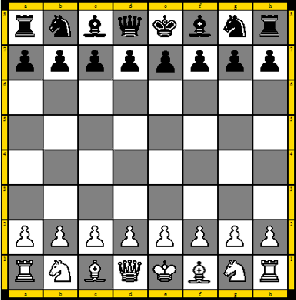After a brief back and forth in a comments section, I was encouraged by Dr Carrier to read his essay “Neither Life nor the Universe Appear Intelligently Designed”. I am assured that the title of this essay will be proven “with such logical certainty” that all opposing views should be wiped off the face of Earth.
Dr Richard Carrier is a “world-renowned author and speaker”. That quote comes from none other than the world-renowned author and speaker, Dr Richard Carrier. Fellow atheist Massimo Pigliucci says,
The guy writes too much, is too long winded, far too obnoxious for me to be able to withstand reading him for more than a few minutes at a time.
I know the feeling. When Carrier’s essay comes to address evolution, he recommends that we “consider only actual scholars with PhD’s in some relevant field”. One wonders why, when we come to consider the particular intersection of physics, cosmology and philosophy wherein we find fine-tuning, we should consider the musings of someone with a PhD in ancient history. (A couple of articles on philosophy does not a philosopher make). Especially when Carrier has stated that there are six fundamental constants of nature, but can’t say what they are, can’t cite any physicist who believes that laughable claim, and refers to the constants of the standard model of particle physics (which every physicist counts as fundamental constants of nature) as “trivia”.
In this post, we will consider Carrier’s account of probability theory. In the next post, we will consider Carrier’s discussion of fine-tuning. The mathematical background and notation of probability theory were given in a previous post, and follow the discussion of Jaynes. (Note: probabilities can be either  or
or  , and both an overbar
, and both an overbar  and tilde
and tilde  denote negation.)
denote negation.)
Probability theory, a la Carrier
I’ll quote Carrier at length.
Bayes’ theorem is an argument in formal logic that derives the probability that a claim is true from certain other probabilities about that theory and the evidence. It’s been formally proven, so no one who accepts its premises can rationally deny its conclusion. It has four premises … [namely P(h|b), P(~h|b), P(e|h.b), P(e|~h.b)]. … Once we have [those numbers], the conclusion necessarily follows according to a fixed formula. That conclusion is then by definition the probability that our claim h is true given all our evidence e and our background knowledge b.
We’re off to a dubious start. Bayes’ theorem, as the name suggests, is a theorem, not an argument, and certainly not a definition. Also, Carrier seems to be saying that P(h|b), P(~h|b), P(e|h.b), and P(e|~h.b) are the premises from which one formally proves Bayes’ theorem. This fails to understand the difference between the derivation of a theorem and the terms in an equation. Bayes’ theorem is derived from the axioms of probability theory – Kolmogorov’s axioms or Cox’s theorem are popular starting points. Any necessity in Bayes’ theorem comes from those axioms, not from the four numbers P(h|b), P(~h|b), P(e|h.b), and P(e|~h.b). (more…)
Read Full Post »
